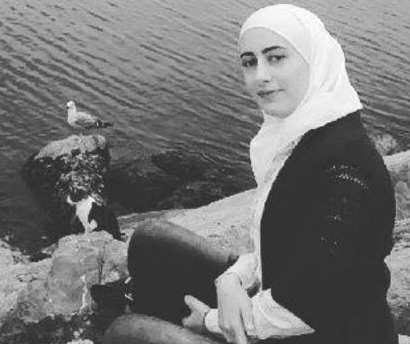Layla Shweikani travelled to Syria in September 2015 to help people affected by the war raging there, but was arrested by Syrian authorities just six months after her arrival and charged with terrorism offences. She and her family had travelled back and forth between Syria and the US for many years, but when she arrived in Damascus in 2015 she intended to stay there. A dual US-Syrian citizen, she was motivated to help civilians suffering from the war and began work with a group of friends to organise aid efforts for people in the Damascus suburb of Eastern Ghouta, then besieged by government forces.
Less than a year later she was executed following a trial that lasted for 30 seconds, according to rights groups following her case.
As the global outcry over the murder of Saudi journalist Jamal Khashoggi continues to reverberate, many struggled to understand why her killing failed to elicit similar attention. Following the confirmation of her death, the White House faced growing calls for a response to her killing. Donald Trump has made it a hallmark of his presidency to free Americans detained abroad, including a very public and ultimately successful campaign for the release of American pastor Andrew Brunson, who was jailed in Turkey for two years on charges of aiding a coup attempt against President Recep Tayyip Erdogan. But weeks after her death was confirmed, he had yet to comment on Layla’s death.
That silence is indicative of how two successive US administrations failed Shweikani and her family, both in her time of need as a prisoner and after her brutal death, according to people involved with the efforts to have her freed.
“If the State Department had done something more back then by putting more pressure and showing that there would be consequences, I think Layla would be alive today,” says Qutaiba Idlbi, a researcher who works with the relatives of Syrian detainees.
“Politically, they were not interested in doing anything,” he adds. “Their entire response was ridiculous.”
Charles Lister, a senior fellow at the Middle East Institute, who has testified before the House Committee on Foreign Affairs, called the US government response to Shweikani’s death “shameful”.
“I find it hard to imagine that we’d have witnessed such silence if Layla had been called Meredith and she’d been blonde-haired and fair-skinned. At the end of the day, an American was detained on false charges, sentenced to death by execution, and killed in the custody of the Assad regime – a regime our government continues to call brutal and illegitimate to this day,” he tells The Independent. “I think the US government and the US media community needs to do some very serious soul-searching about what it means to be American.”
Compiled from report by The Independent
p { margin-bottom: 0.25cm; line-height: 120%; }a:link { }
